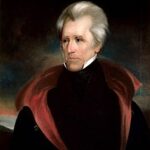The Revolutionary Veto Strategy
Andrew Jackson fundamentally transformed presidential power through his unprecedented use of executive vetoes. Previous presidents had issued only nine vetoes combined. Jackson boldly exercised twelve vetoes during his two terms. His most significant action targeted the Second Bank of the United States in 1832. ⚖️ This decision established the president as defender of common citizens against elite financial interests.
Democratic Authority in Action
Jackson’s expansion of presidential power rested on direct appeals to popular will. He positioned himself as the people’s tribune against congressional elites. His veto messages became public manifestos explaining executive decisions. 📊 This communication strategy strengthened the connection between president and citizenry. Jackson argued that presidential power derived from nationwide electoral mandate.
Constitutional Precedents
The Bank War of 1832 showcased Jackson’s vision of executive authority. He withdrew federal deposits despite congressional opposition. 💰 This action demonstrated presidential independence in economic policy. Jackson’s approach established precedents for future executive decision-making during national crises.
Impact:
Immediate Political Transformation
Jackson’s presidential power expansion triggered immediate political realignment across America. Opposition forces coalesced into the Whig Party by 1834. They specifically opposed what they termed “King Andrew’s” executive overreach. 🔥 Congressional debates intensified over constitutional limits on presidential authority. Jackson’s supporters celebrated his democratic leadership style. His opponents feared the erosion of legislative supremacy.
Long-term Constitutional Legacy
Jackson’s precedents fundamentally reshaped the American presidency for future generations. His use of presidential power influenced Lincoln during the Civil War. Franklin Roosevelt drew inspiration from Jackson’s executive leadership during the Great Depression. 🌍 Modern presidents continue invoking Jackson’s model of popular democratic authority. His expansion of executive power remains controversial among constitutional scholars today.
Democratic Institutional Changes
The strengthening of presidential power under Jackson accelerated democratic institutional development. His administration expanded federal employment through patronage systems. 📈 This “spoils system” increased presidential influence over government operations. Jackson’s approach democratized federal service by removing aristocratic barriers. His reforms made government more responsive to electoral changes and popular will.
